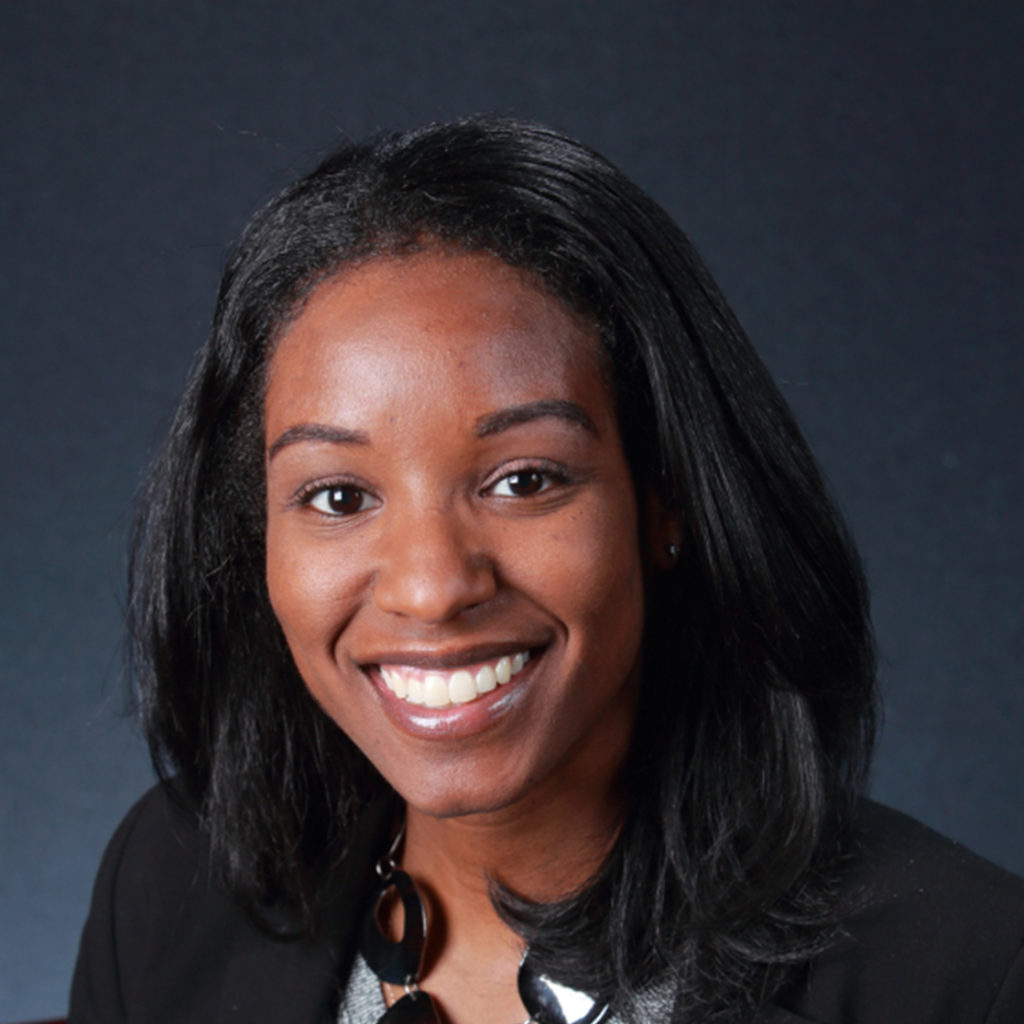
Stacey Finley, PhD
Visiting Member, Ellison Medical Institute
Gordon S. Marshall Early Career Chair
Associate Professor of Biomedical Engineering
Director, Center for Computational Modeling of Cancer
Stacey D. Finley is a Visiting Member at the Ellison Medical Institute, as well as the Gordon S. Marshall Early Career Chair and Associate Professor of Biomedical Engineering at the University of Southern California. Dr. Finley joined the faculty at USC in 2013, and she leads the Computational Systems Biology Laboratory. Dr. Finley’s research group applies systems biology methods to quantitatively understand the dynamics of key signaling and metabolic networks in cancer, providing a multifaceted approach to improve our understanding of this complex disease.
Dr. Finley received her B.S. in Chemical Engineering from Florida A & M University and obtained her Ph.D. in Chemical Engineering from Northwestern University. She completed postdoctoral training at Johns Hopkins University in the Department of Biomedical Engineering. Dr. Finley is a core faculty member in the Department of Biological Sciences, Quantitative and Computational Biology section, and has a joint appointment in the Department of Chemical Engineering and Materials Science. She is also a member of the USC Norris Comprehensive Cancer Center. Dr. Finley is the Director of the Center for Computational Modeling of Cancer at USC.
Selected honors. 2016 NSF Faculty Early CAREER Award; 2016 Young Innovator by the Cellular and Molecular Bioengineering journal; Leah Edelstein-Keshet Prize from the Society of Mathematical Biology; Junior Research Award from the USC Viterbi School of Engineering; the Hanna Reisler Mentorship Award; 2018 AACR NextGen Star; 2018 Orange County Engineering Council Outstanding Young Engineer.
Research Focus
Mathematical Oncology
Computational Modeling
Systems Biology
Education
BS
Chemical Engineering, Summa Cum Laude, Florida A & M University-2004
PhD
Chemical and Biological Engineering, Northwestern University-2009
Awards
- American Association for Cancer Research NextGen Star-2018
- Outstanding Young Engineer, Orange County Engineering Council-2018
- Gordon S. Marshall Early Career Chair-2017-Present
- USC Viterbi Junior Research Award-2017
- Hanna Reisler Mentorship Award-2017
- Leah-Edelstein Keshet Prize, Society of Mathematical Biology-2017
- National Academy of Engineering Frontiers in Engineering-2016
- CMBE Young Innovator -2016
- National Science Foundation CAREER Award-2016
- Keystone Symposia Fellow-2016
- Rose Hills Foundation Research Fellowship -2015
- Emerging Scholar Award from the publication Diverse: Issues in Higher Education-2015
- National Academy of Engineering Frontiers in Engineering Education-2014
- Gabilan Assistant Professorship-2013-2017
- Elmer Gaden Jr. Award from the journal Biotechnology and Bioengineering-2011
- NIH Ruth L. Kirschstein National Research Service Award-2010-2013
- UNCF/Merck Postdoctoral Science Research Fellowship-2010-2012
- NSF Graduate Research Fellowship-2006-2009
Affiliations
- Director, Center for Computational Modeling of Cancer
- Associate Member, Norris Comprehensive Cancer Center
- Department of Biological Sciences (Quantitative and Computational Biology section)
- Mork Family Department of Chemical Engineering & Materials Science
Selected Publications
Finley, S.D. and Popel, A.S. (2013) “Effect of tumor microenvironment on tumor VEGF during anti- VEGF treatment: systems biology predictions”. Journal of the National Cancer Institute. 105(11), 802-11.
Rohrs, J.A.†, Wang, P., Finley, S.D. (2016) “Predictive model of lymphocyte-specific protein tyrosine kinase (LCK) autoregulation”. Cellular and Molecular Bioengineering. 9(3), 351-367. **Selected for the 2016 Young Innovators issue of the journal
Li, D.† and Finley, S.D. (2018) “The impact of tumor receptor heterogeneity on the response to anti-angiogenic cancer treatment”. Integrative Biology. 10, 253 – 269 **Selected as a HOT article based on editor’s assessment and exceptionally strong reviews
Gaddy, T.D.‡, Wu, Q.†, Arnheim, A.D.‡ and Finley, S.D. (2017) “Mechanistic modeling quantifies the influence of tumor growth kinetics on the response to anti-angiogenic treatment”. PLOS Computational Biology. 13(12): e1005874.
Wu, Q.†, Arnheim, A.D.‡ and Finley, S.D. (2018) “In silico mouse study identifies tumor growth kinetics as biomarkers for the outcome of anti-angiogenic treatment.” Journal of the Royal Society Interface. 15, 20180243.
Finley, S.D., Chu, L.H., Popel, A.S. (2015) “Computational systems biology approaches to antiangiogenic cancer therapeutics”. Drug Discovery Today. 20(2), 187-197.
Szeto, G.L. and Finley, S.D. (2019) “Integrative approaches to cancer immunotherapy”. Trends in Cancer. 5(7), 400-410.
Rohrs, J.A.†, Sulistio, C.S.‡, and Finley, S.D. (2016) “Predictive model of thrombospondin-1 and vascular endothelial growth factor in breast tumor tissue”. npj Systems Biology and Applications (Nature Partner Journal). 2, 16030.
Rohrs, J.A.†, Zheng, D., Graham, N.A., Wang, P., and Finley, S.D. (2018) “Computational model of chimeric antigen receptors explains site-specific phosphorylation kinetics”. Biophysical Journal. 115, 1-14.
Roy, M.* and Finley, S.D. (2019) “Metabolic reprogramming dynamics in tumor spheroids: Insights from a multicellular, multiscale model”. PLOS Computational Biology. 15(6): e1007053.
Research group members: * Postdoctoral scholar, † Ph.D. student, ‡ Undergraduate student
